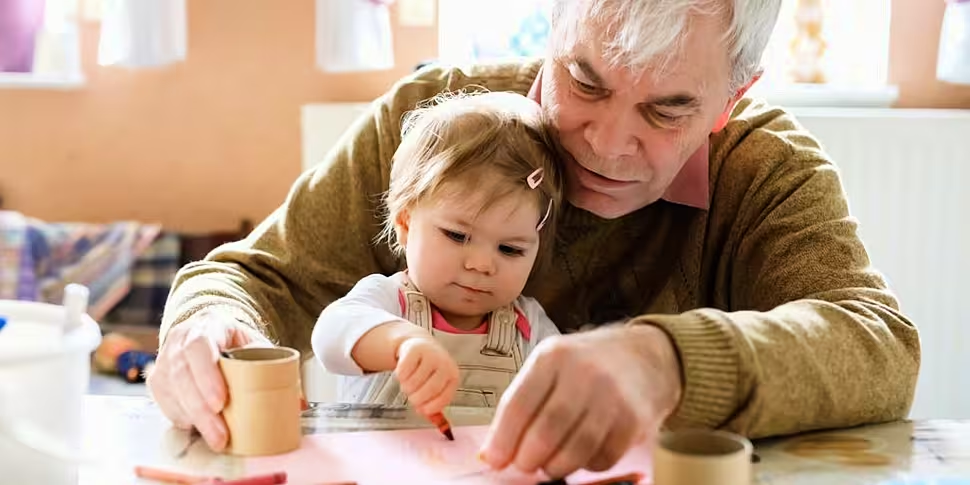On this week's 'Parenting' segment on the Moncrieff show, one listener sought advice about what to tell her toddler when she gets sick and needs to go to the hospital.
Joanna Fortune, psychotherapist specialising in Child & Adult Psychotherapy, joined Moncrieff to answer this and other listeners' questions.
The question:
"I have Cystic Fibrosis and am a mother of a 2 and a 1/2 year old little girl. I have been in and out of hospital a few times for brief stays since she was born but recently was brought in for a longer stay of 10 days.
"Since returning home, my daughter has been acting out a lot. Of course, she has always had her usual toddler tantrums but she is particularly on edge at the moment, spitting on the floor, throwing things, bedtime is a huge ordeal which takes over an hour to finally settle her.
"I understand that this is all a reaction to my leaving her but just not sure how to deal with it with her, now and if this happens again in the future. We didn't tell her I was in hospital this time, instead telling her I had to "go to work"
"This is because the last time I was unwell and was brought into hospital for a few days she was fixated on "Mammy is sick" for weeks after so we felt it best to protect her and not worry her again.
"Would love advice on the best approach. "
Listen and subscribe to Moncrieff on Apple Podcasts, Google Podcasts or Spotify.
The advice:
“First of all, I think when you’re living with a significant health condition like cystic fibrosis, just to start with this, it is okay to put yourself first when you need to.
“I think as parents the message is always, ‘It’s about the children.’ Of course, focusing on our children is really important but you’re modelling something for your child from the youngest age when you can show her that when you feel unwell, you take care of yourself.
“So it is okay to put yourself first. I just want to emphasise that.
“I love that you flag usual toddler tantrums because two and a half and tantrums - they go hand in hand.
“But this is a little over and above and what I’m reading into this is that there has been an amplification of normal tantrums that certainly goes alongside the hospitalisation.
“So when you tell her - and I totally get why you did it but I’m always going to say, ‘Don’t lie to children’ because it just breaks trust.
“This ‘Go to work’ is very vague and I think at two and a half you’re like, ‘What is this mystical place called work and why did it go on so long?’ and it just means that every time you genuinely go to work it triggers a fear response of ‘Are you going to disappear for 10 days?’
“It’s very difficult to tell a young child but also cystic fibrosis is part of your family story. So this is going to be something your child grows up with… and it’s going to be an increasing awareness.
“So I do think you need to tell her but it’s how you frame it for young children is really important.
“So you could frame it like, ‘Mum has to go stay with the doctors for a little while so they can help her get really well.’
“So your focus is on getting well - not being sick - if that makes sense.
“And I know that sounds like just semantics but words matter and particularly with young children.”
 A hospital in Dublin. Photograph: Sasko Lazarov / RollingNews.ie
A hospital in Dublin. Photograph: Sasko Lazarov / RollingNews.ieJoanna continued:
“And if you don’t have one, get a medical play kit and play out the role of doctor and patient - and role reverse it! That you get to be the patient and she gets to be the doctor healing you.
“And then she gets to be the patient and you get to take care of her in the play.”
She added:
“I think it’s really important when you’re parenting with a significant illness that you focus on what you can do because there will be days when you think, ‘I can do more!’ Great - do that!
“And there will be days when you’re like, ‘You know what, I need to dig into what I call armchair play, when I’m not getting out of the armchair but I’m going to have prepared what I call a few rainy day activities’ - low parental stamina activities.”
Main image: A toddler and relative.









